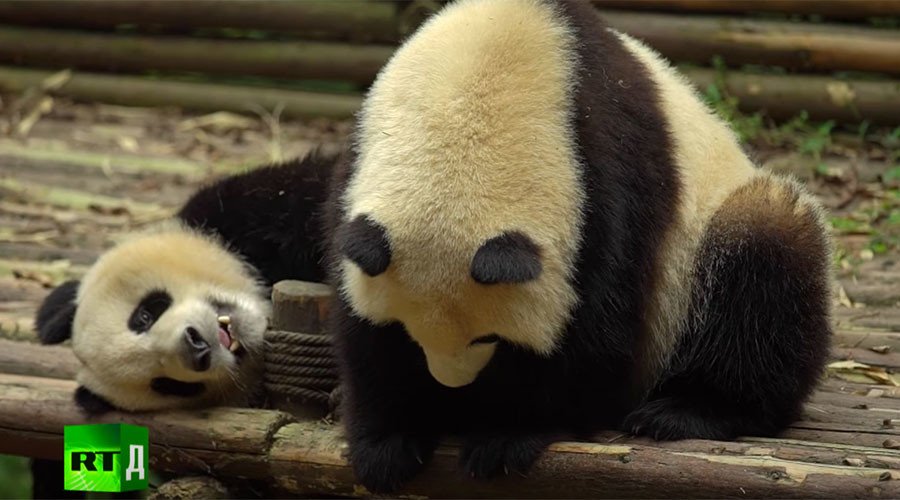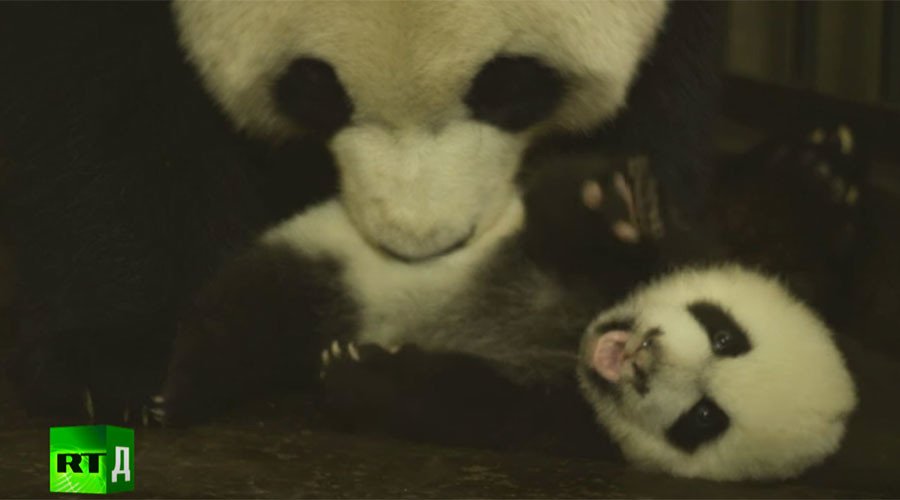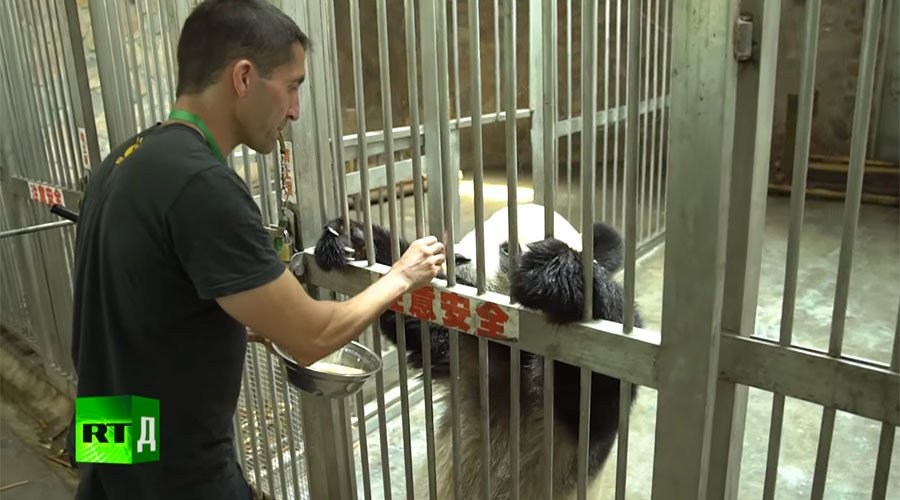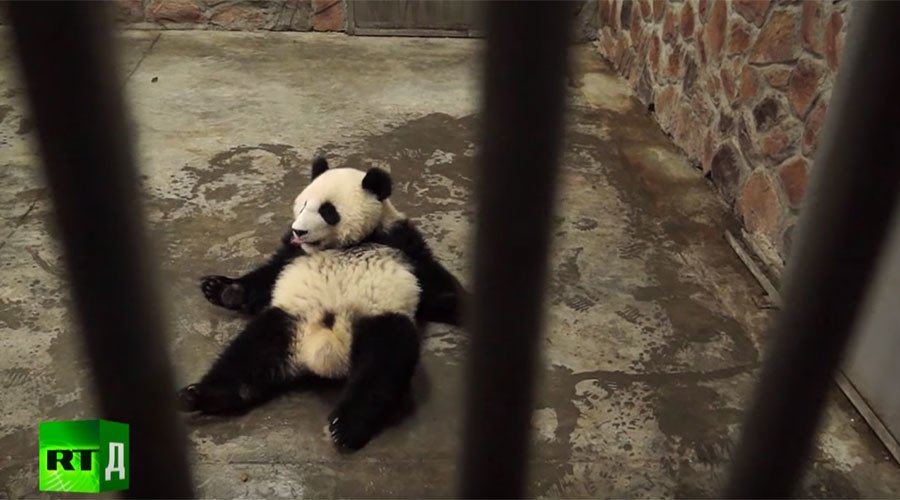Sex ed classes, romantic dates set for pandas in China to prevent extinction (DOCUMENTARY)

The Giant Panda was removed from the endangered species list last year. RT visited the Chengdu Panda Base in China to capture first hand what steps are being taken to save these beautiful bears from extinction.
Not so cuddly: Giant panda mom severely mauls nature reserve worker in China
With birth rates in the wild being dangerously low, captive breeding remains essential for the survival of the species. Pandas are known for being too lazy to breed, while its females can only get impregnated for 48 hours per year.

The employees of the center even provide Sex Ed classes and arrange romantic dates for their black and white wards.
Panda v snowman: Ruthless first round knock-out sends message to champ McGregor (VIDEO)
“In every cage of panda, who’ve reached puberty we show a video. So that females and males can watch and learn,” Yang Kuixing, from the Chengdu center told RT.

In 1963, the first ever panda cub was born in captivity. A lot of progress has been made since then, with up to 25 cubs now born each year at Chengdu.
“We’ve resolved the main issues” with captivity breeding, Kuixing said.
China is now the only country in the world where pandas still live in the wild, with the state putting a lot of effort into restoring the animal’s forest habitat and expanding its population.
The Chengdu panda breeding center, which became the focus of ‘It’s a Pandaful life!’ documentary, is spearheading Beijing’s program, employing highly qualified local and international specialists.

The experts who work at the center even claim they can speak the language of their bamboo-loving creatures.
“Pandas have their own feelings, emotions and behavior. They’re similar to humans,” Guo Jing Peng, another Сhengdu employee, said.
According to Chinese law, each newborn panda cub becomes property of the state, with zoo’s renting the animals for a hefty $1 million annual fee.

The animals receive the best possible care at the center as they are fed hand-picked bamboo and undergo daily medical examinations.
However, the 1864 pandas that currently live in the wild are far from danger, with animal behavior researcher, James E. Ayala, saying that their removal from endangered species list was “premature.”
High cub mortality, parasites, “poachers, hunting them for their bones, paws and pelts,” are among the main risk factors, Ying Li, professor at Sichuan agricultural university, told RT.
The diet of the first carnivore that chose to become vegetarian, is also a problem, Li added, explaining that bamboo is a low calorie food, which the pandas are unable to fully stomach.
READ MORE: Kung Fu Panda: Man gets taken down in epic zoo faceoff (VIDEO)
She’s now working to “find a special bacteria that would help Giant pandas to digest cellulose.”
Kuixing stressed that it would be “a great success… if a panda born here at the center is able to mate with a wild one.”












